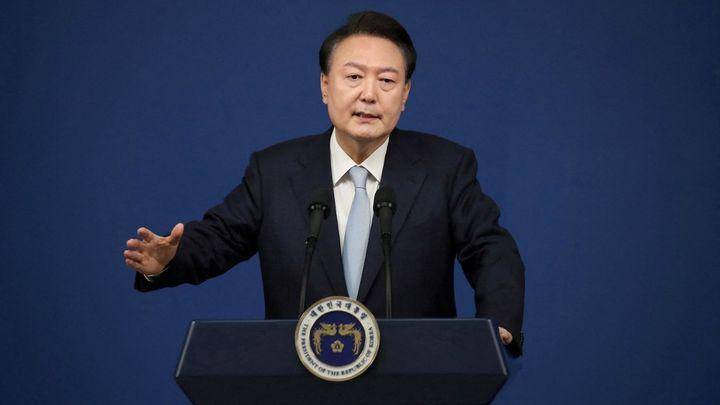South Korea President Yoon Declares Emergency Martial Law: A Controversial Move Amid Growing Unrest.
In a dramatic and unprecedented move, South Korea’s President Yoon Suk-yeol declared emergency martial law on Tuesday, citing the nation’s growing instability and threats from internal and external forces. The announcement came as tensions within the country reached a boiling point, with widespread unrest fueled by political opposition and escalating threats from North Korea.
Why Did President Yoon Declare Martial Law?
President Yoon's decision to invoke martial law was driven by several factors. In his televised address, he explained that the South Korean government faced severe internal challenges from what he called "antistate elements." These elements, according to Yoon, were undermining the state’s operations and destabilizing the country. He emphasized the urgency of the measure to protect South Korea’s democracy, stating that the opposition’s actions, including the cutting of vital national budgets and promoting social unrest, had left the country vulnerable.
One of the primary concerns mentioned by Yoon was the increasing drug crime and public safety issues, which he claimed were exacerbated by the actions of the National Assembly. According to him, the opposition’s failure to pass essential budgets had disrupted the government’s ability to function effectively, leading to chaos and an unsafe environment for the citizens of South Korea.
The Scope of Martial Law.
Under the declaration, several strict measures were put into place. General Park An-soo, the martial law commander, outlined significant restrictions on political activities, including a ban on protests, demonstrations, and strikes. Political parties and associations were also prohibited from holding meetings or rallies. Media outlets would be placed under strict control, and any acts of dissent, such as spreading misinformation or attempting to overthrow the democratic system, would be met with severe punishment.
The measures also targeted healthcare workers, many of whom were on strike at the time. These workers were given 48 hours to return to their posts or face legal consequences. In essence, President Yoon’s martial law sought to curb all forms of opposition, real or perceived, to maintain order and stability.
Political Backlash and Growing Dissent
The declaration of martial law has faced significant backlash, especially from opposition leaders. Han Dong-hoon, leader of the ruling conservative People Power Party, publicly opposed the decision, calling it a mistake. He stressed that such extreme measures could worsen the country’s problems rather than solve them, asserting that the people of South Korea would resist the martial law.
The liberal Democratic Party, South Korea’s main opposition group, echoed these concerns, warning that the move could lead to economic collapse and irreversible damage to the country’s democracy. Lee Jae-myung, the party leader, condemned the decision during a livestream, describing it as an authoritarian move that would harm the nation’s future.
What’s at Stake for South Korea?
The declaration of martial law represents a critical juncture in South Korea’s history. While President Yoon insists that the move is necessary to safeguard the country’s democracy, critics fear that it could lead to an erosion of freedoms and further division within the nation. With the economy already under strain and social tensions running high, many are questioning whether the president’s decision will help restore order or fuel even greater unrest.
As South Korea navigates these turbulent waters, the world will be watching closely. The outcome of this dramatic political crisis will have profound implications for the future of South Korean democracy and its relationship with neighboring North Korea. Whether President Yoon’s controversial move will succeed in stabilizing the country or ignite further conflict remains to be seen.



No comments yet
Be the first to share your thoughts!